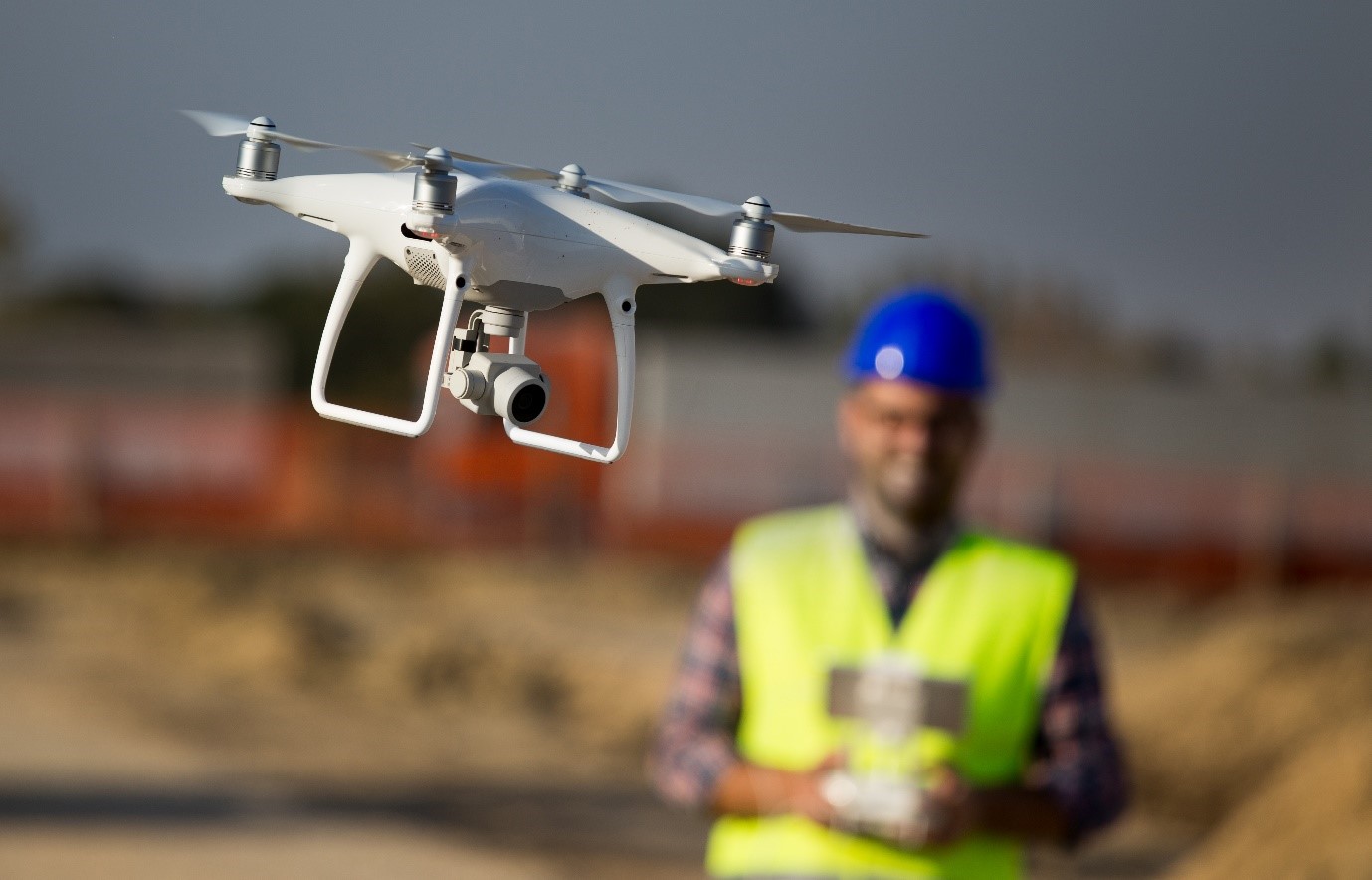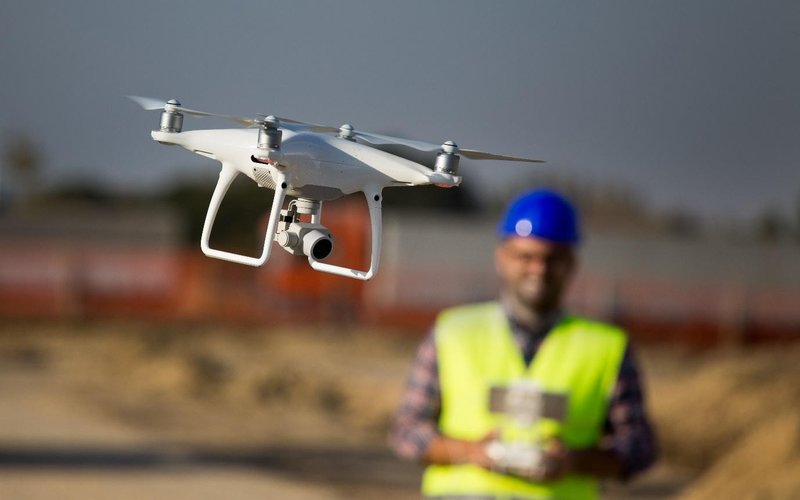
by John McCarthy Consulting Ltd. | Nov 10, 2020 | Blog, News
When the Coronavirus (COVID-19) first broke in Ireland we wrote about the issue of carrying out remote stocktakes as part of remote audits.
While it’s a possibility that the lockdown restrictions may be lifted in early December, there may still be some reluctance among audit personnel and among staff in client entities, meeting in person, thereby making remote stocktaking of prime consideration.
Five things to consider in planning for remote inventory counts are:
- Drones or remotely controlled robots, might help with your inventory testing in some cases, but the cooperation of client personnel and safety restrictions on flying of drones need to be taken into account and will be heavily influenced by the geography and physical surroundings of where the stock is located.
- Control of the drone footage and who is in control of how and where the cameras are directed needs discussed with clients in advance. If the auditor is not in control, then there is a risk that the recorded footage could be manipulated.
- Completeness is one of the main audit assertions and the auditor needs to consider this when planning a remote stocktake. Assess whether the cameras will allow you to see all of the inventory at any one point in time and also consider the risk that certain items could be kept out of view or are moved around behind the camera’s view and might be omitted from the stock count.
- Assessing the condition of the inventory is another critical matter. Video cameras with strong resolution are necessary so that inventory damage can be better assessed. In some cases, photographic images of stock may be more accurate in assessing damaged or obsolete inventory.
- Selecting samples for testing is another critical matter including the consideration of increasing sample sizes for the added risks mentioned here. Selecting items only during the count itself (with no advance notification ) and then identifying the items to be tested from floor to sheet and sheet to floor can help to reduce the risk of manipulation
Given these technology constraints, staff with prior experience of inventory counts will be better able to handle the unexpected, and ideally should be accompanied by other experienced personnel.
For a complete list of our time-saving engagement letter templates for audit, non-audit, tax, grant claims, forensic services and other templates like letters of representation dealing with Brexit and Covid-19, visit our store here.
We also have a suite of 19 webinars if you want to catch up on your CPD before the end of 2020 here.
For the latest technical resources on Covid-19 please visit the
- Chartered Accountants Ireland Covid hub here
- ICAEW Covid-19 hub here

by John McCarthy Consulting Ltd. | Mar 31, 2020 | Blog, News
Following the announcement by the Taoiseach, on the 27th March, all non-essential workers must stay at home and only travel for work if absolutely necessary. This means disruption to 31st March stocktake attendance by auditors.
It’s unclear how popular a 31st March period end is in Ireland. It tends to be more popular in the UK, due to its proximity to the end of the income tax year of 5 April, so UK auditors may have bigger headaches with this issue than Irish auditors.
However, if stocktake attendance does not affect you right now, it will inevitably affect stocktakes in the months to come, so be prepared and plan ahead.
Even if you can justify attendance at the stocktake as ‘essential’ work, there are likely to be problems as client staff struggle to get prepared on time to make the stocktake as effective as it usually is under ‘normal’ conditions, along with other logistical problems.
What can be done?
Let’s see what the standards say.
‘ISA (UK) 501 Audit Evidence – Specific Considerations for Selected Items’ requires the auditor to attend a stock take where stock is material. Paragraph 6 says:
‘If the auditor is unable to attend physical inventory counting due to unforeseen circumstances, the auditor shall make or observe some physical counts on an alternative date and perform audit procedures on intervening transactions.’
This presents a few different options for auditors to consider:
1.The client could consider extending their accounting period to later in the year, to say 30 June 2020 (assuming they have not already extended their accounting period in the last 5 years). This could be a once-off change, as the period could be shortened again back to 31 March 2021.
2. Keep the 31 March date, but rather than attending the stock count at the year end date, a stock count is performed later in the year and the numbers rolled back. The rolling back process involves additional procedures that must be carried out to obtain evidence about the movements between the count date and the year end. This is similar to the exercise that must happen whenever an auditor is appointed to a new audit client (that holds stocks) after the client’s period-end has passed. The roll-back is especially important where the client wants to help avoid a scope limitation modification in their audit report (e.g. to avoid breaching a bank covenant).
Perpetual stock systems with strong controls in place obviously make performing such procedures much easier. If the client is closed due to the coronavirus outbreak, the rollback procedures should be pretty easy, as there should be minimal inventory movement.
3. Where accompanying roll-back procedures cannot be performed at the post year-end stocktake, because the client’s records are unable to provide sufficient evidence over the existence of stock as at the year end, a qualified opinion is much more likely to arise from a limitation of scope.
This may present added difficulties as there may be implications under the Companies Act, 2014, to do with whether the company has maintained ‘adequate accounting records’ (stock records) under Section 282 Companies Act, 2014, thus triggering an additional audit qualification on this topic, and additional reporting to the ODCE under Section 286 Companies Act, 2014.
4. Depending on the nature of the client’s stock and whether anybody is actually working at the warehouse, the use of video calling (e.g. Zoom, Skype or Facetime) or the hire of a drone (check with Damian Heslin at Drone Works Ireland in Galway) could be considered, to provide some additional level of audit assurance. Drones could also be used to check on the physical existence of buildings, forestry, livestock etc.
Good sources of guidance on this topic are available on the various audit issues surrounding the coronavirus:
- Auditing implications of the coronavirus at this link @ Chartered Accountants Ireland
- FAQs for auditors regarding coronavirus at this link @ Chartered Accountants Ireland
- The limitation of audit scope at the Institute of Chartered Accountants in England & Wales ICAEW. The latter site gives useful information for general guidance though they contain references to UK company legislation.







